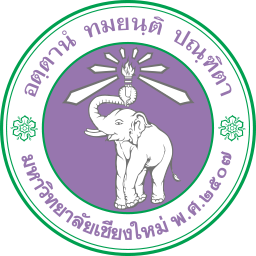About
Our History

SECRA
SECRA – Strengthening University-Enterprise Collaboration for Resilient Communities in Asia
Our History

SECRA – Strengthening University-Enterprise Collaboration for Resilient Communities in Asia
The overarching aim of SECRA is to contribute to more resilient communities in Asia through institutionalized, systematic, monitored, innovative, and inclusive university enterprise collaboration in disaster resilience.
The overarching problem targeted by SECRA is the often ad hoc, episodic quality of university-enterprise collaboration (UEC) in the field of disaster resilience in the project’s partner countries, Sri Lanka, Thailand, and the Philippines. By ad hoc, we mean that UEC is neither systematic, nor institutionalized or monitored. This is a pressing problem, because the knowledge and skills transfer through entrepreneurial, triple helix processes within UEC have the potential to increase disaster resilience, as, for example, in better and more efficient agricultural practices (Ankrah and Al-Tabbaa, 2015). In turn, disaster resilient societies are more likely to better respond and adapt to consequences of climate change, to which the partner countries are vulnerable. SECRA concomitantly addresses gender equity as a means of achieving better UEC. There is not a simple answer to the wickedness of climate change consequences or in resilience thinking; we are claiming however, that facilitating systematic, institutionalized, and monitored UEC is part of a solution.
SECRA has identified a number of specific, interlinked objectives as a means of parsing this overarching aim and focusing the work or each individual WP.
Notably, SECRA's aim and objectives are not only in line with the EU2020 strategy and the cross-cutting and regional priorities, but also with a number of United Nations Sustainable Development Goals, namely 5 (gender equality), 9 (industry, innovation, and infrastructure), 13 (climate action), and 17 (partnerships for the goals).
SECRA deals with the problem at hand in a sequential fashion. The indirect, larger issue is fostering disaster resilience communities in Asia. SECRA's contribution to more resilient communities is through increasing the capacity of HEIs to initiate, manage, maintain, and benefit from UEC.
As a capacity building joint project, SECRA’s activities will provide a framework of structured collaboration promoting understanding between people. It will also contribute to the sustainable development of higher education in partner countries, mostly through an enhanced cooperation between academic communities and societal partners (EU, 2013), items articulated as part of the broader objectives underpinning the 2013 regulation establishing Erasmus+. Additionally, SECRA’s aim and objectives are aligned with the broad objectives of capacity-building projects, namely to support the Asian partners in addressing challenges faced by their HEIs, contribute to cooperation among program and partner countries and even among partner countries, and promote people- to-people contact, cultural awareness and understanding (EC, 2019). Notably, SECRA's aim and objectives are not only in line with the EU2020 strategy, and the cross-cutting and regional priorities, but also with the United Nations Sustainable Development Goals nos 5 (gender equality), 9 (industry, innovation, and infrastructure), 13 (climate action), and 17 (partnerships for the goals).
SECRA’s focus on the field on DR aligns with the most recent addition to the cross-cutting priorities, namely that of addressing climate change prevention, adaptation, and mitigation strategies. These strategies are more fruitfully achieved through the pooling of resources and innovation between in triple helix arrangements such us UEC. Additionally, SECRA will contribute to the following Asia Region 6, category 3, regional priorities:
SECRA will enhance the capacity of HEIs in the partner countries when it comes to UEC in the following ways:
Finally, we must always remember that the practical goal (or the answer to the “so what” question) of this project is a contribution to resilient communities in Asia. An enhanced higher education sector has the potential to having systemic impact; furthermore, entrepreneurship (Williams, Vorley, and Ketikidis, 2013) and social networks that is, the relations among people and organizations (Jones and Faas, 2017) are connected to resilience in general, and DR in particular.
Based on this rationale, we believe that SECRA is very well positioned to address the regional goals for Region 6 Asia.
References
Ankrah, S., & Al-Tabbaa, O. (2015). Universities–industry collaboration: A systematic review. Scandinavian Journal of Management, 31(3), 387-408. doi:https://doi.org/10.1016/j.scaman.2015.02.003
Bedi, N., Bishop, M., Hawkins, U., Miller, O., Pedraza, R., Preble, A. and Rico-Rairan, A. (2014) Linking
Resilience and Good Governance: A Literature Review, Anthós: 6 (1) 10.15760/anthos.2014.15
European Union (2013). Regulation no 1288 of the European Parliament and the Council. Official Journal of the European Union.
Jones, E. C., & Faas, A. J. (2017). An introduction to social network analysis in disaster contexts. In E. C.
Jones & A. J. Faas (Eds.), Social network analysis of disaster response, recovery, and adaptation (pp. 3-9). Oxford: Elsevier.
QAA (2018). Enterprise and entrepreneurship education: guidance for UK higher education providers.
Retrieved on 15 January, 2018 from https://www.qaa.ac.uk/docs/qaas/enhancement-anddevelopment/enterprise-and-entrpreneurship-education-2018.pdf?sfvrsn=15f1f981_8

Copyright ©
2016 Faculty of Agro-Industry, All rights reserved.
by Plan, Policies and Educational Quality Assurance Division
Faculty of Agro-Industry, Chiang Mai University 155 M.2, Mae Hia, Muang, Chiang Mai, 50100
Tel: 66 53 948 206